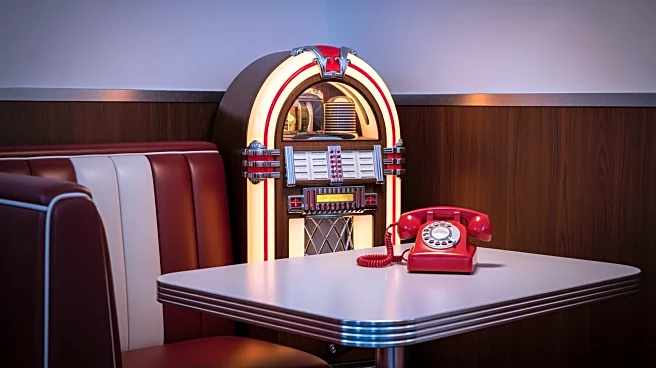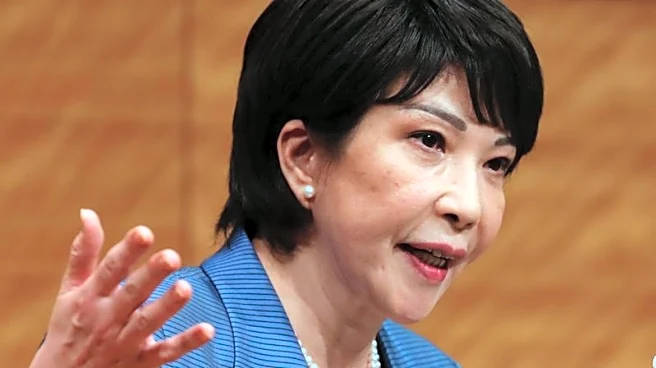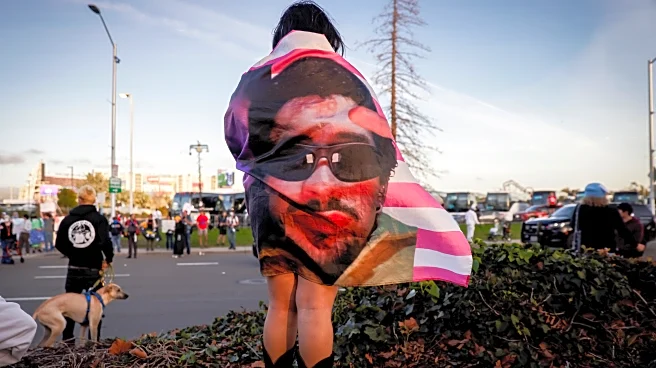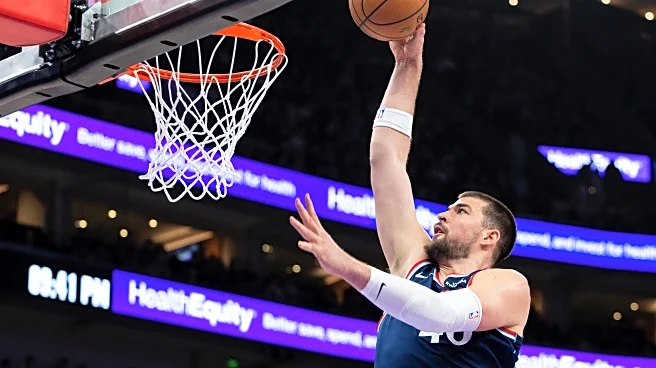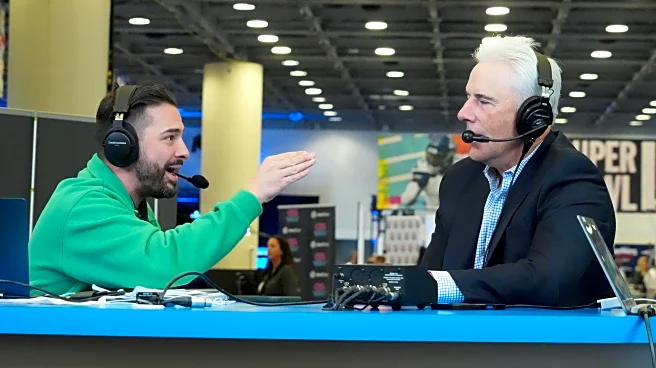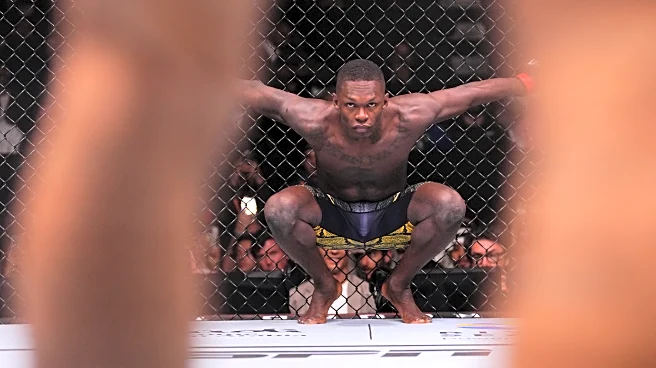What's Happening?
KFC has partnered with Netflix to launch a campaign in the U.K. for the final season of the popular series Stranger Things. The campaign imagines KFC workers delivering food in the fictional town of Hawkins,
Indiana, amidst supernatural chaos. This initiative supports the introduction of a limited-edition Stranger Things menu, featuring items like a spicy chicken burger on a red bun and 'Stranger Wings' with a special sauce. The campaign is part of KFC's 'Believe' platform, which positions the brand as a source of comfort in unpredictable times. This collaboration is one of several brand integrations tied to the show's final season, including partnerships with Doritos and Target.
Why It's Important?
The collaboration between KFC and Stranger Things highlights the growing trend of brand integrations with popular media franchises. By associating with a cultural phenomenon like Stranger Things, KFC aims to tap into the show's dedicated fan base and leverage the nostalgia-driven appeal of the series. This strategy not only enhances KFC's brand visibility but also aligns it with the adventurous and imaginative spirit of the show. Such partnerships can significantly boost brand engagement and drive sales, especially when tied to exclusive product offerings that attract fans of the series.
What's Next?
As the final season of Stranger Things approaches, more brands are likely to seek similar partnerships to capitalize on the show's popularity. KFC's campaign may inspire other companies to create unique marketing strategies that integrate their products with popular media content. The success of these campaigns could lead to increased collaborations between brands and entertainment franchises, potentially setting new standards for marketing in the entertainment industry.
Beyond the Headlines
This campaign underscores the importance of storytelling in marketing, where brands use narratives to create emotional connections with consumers. By embedding KFC within the Stranger Things universe, the brand not only promotes its products but also becomes part of the show's narrative, enhancing consumer engagement. This approach reflects a shift towards experiential marketing, where brands aim to offer memorable experiences rather than just products.
